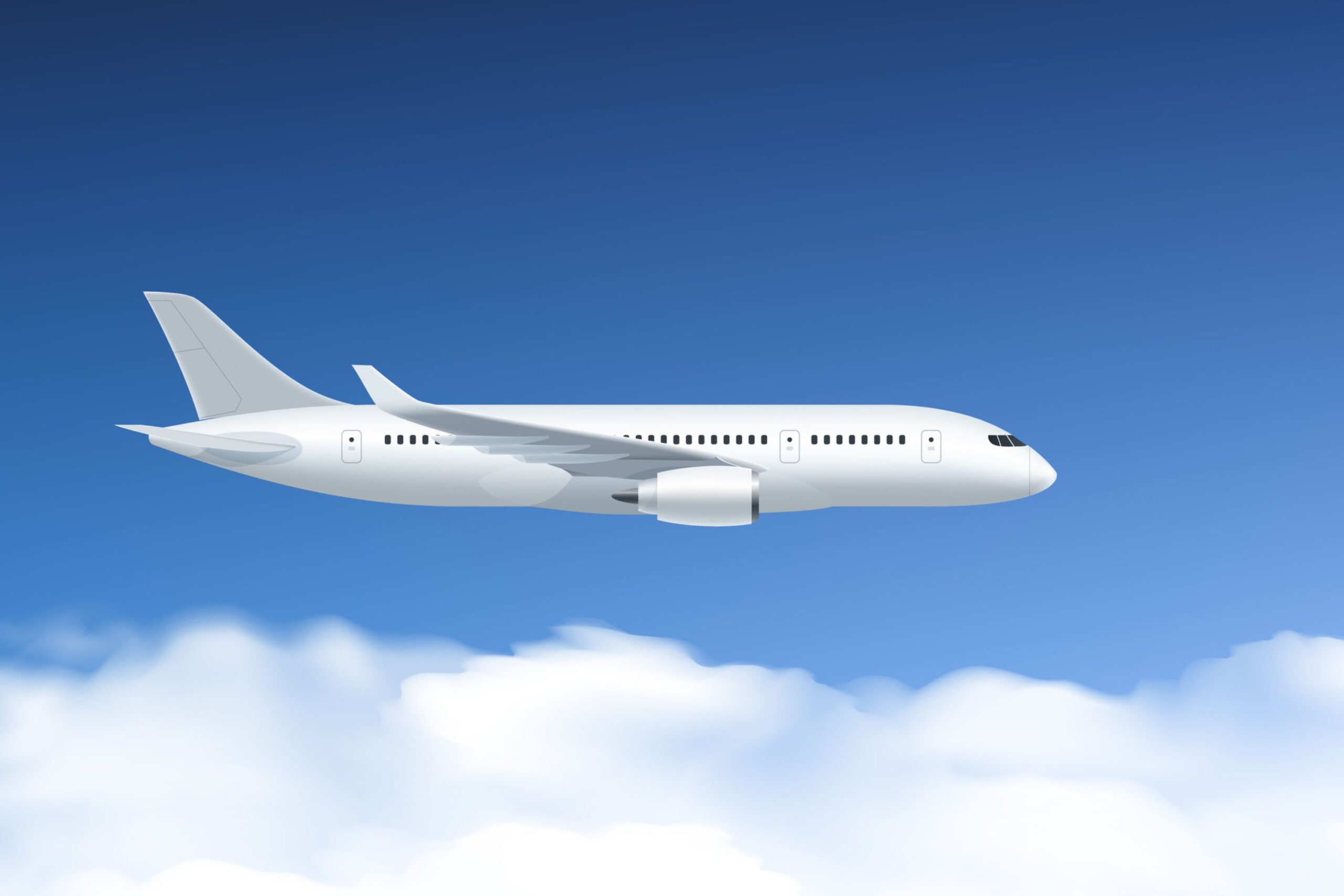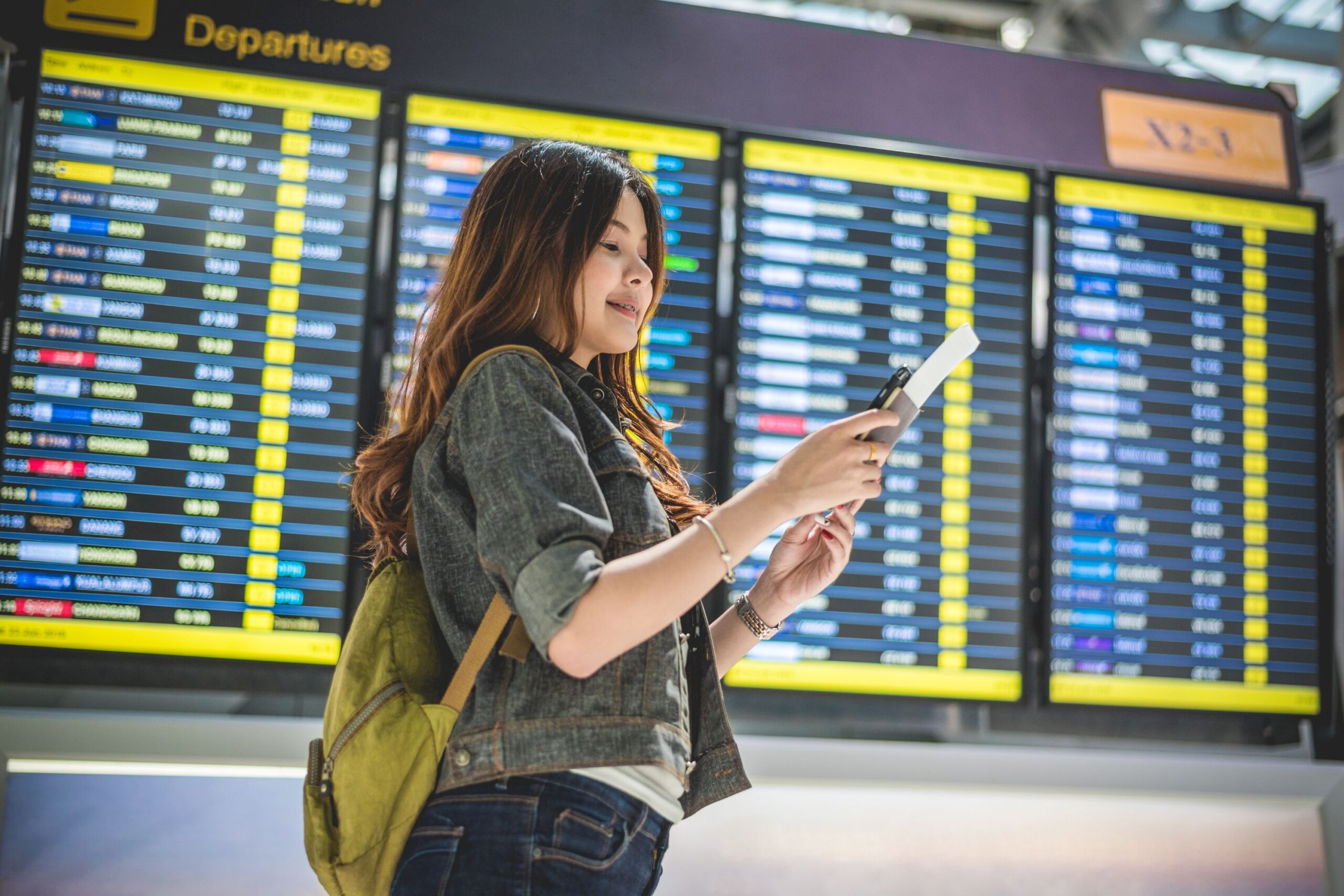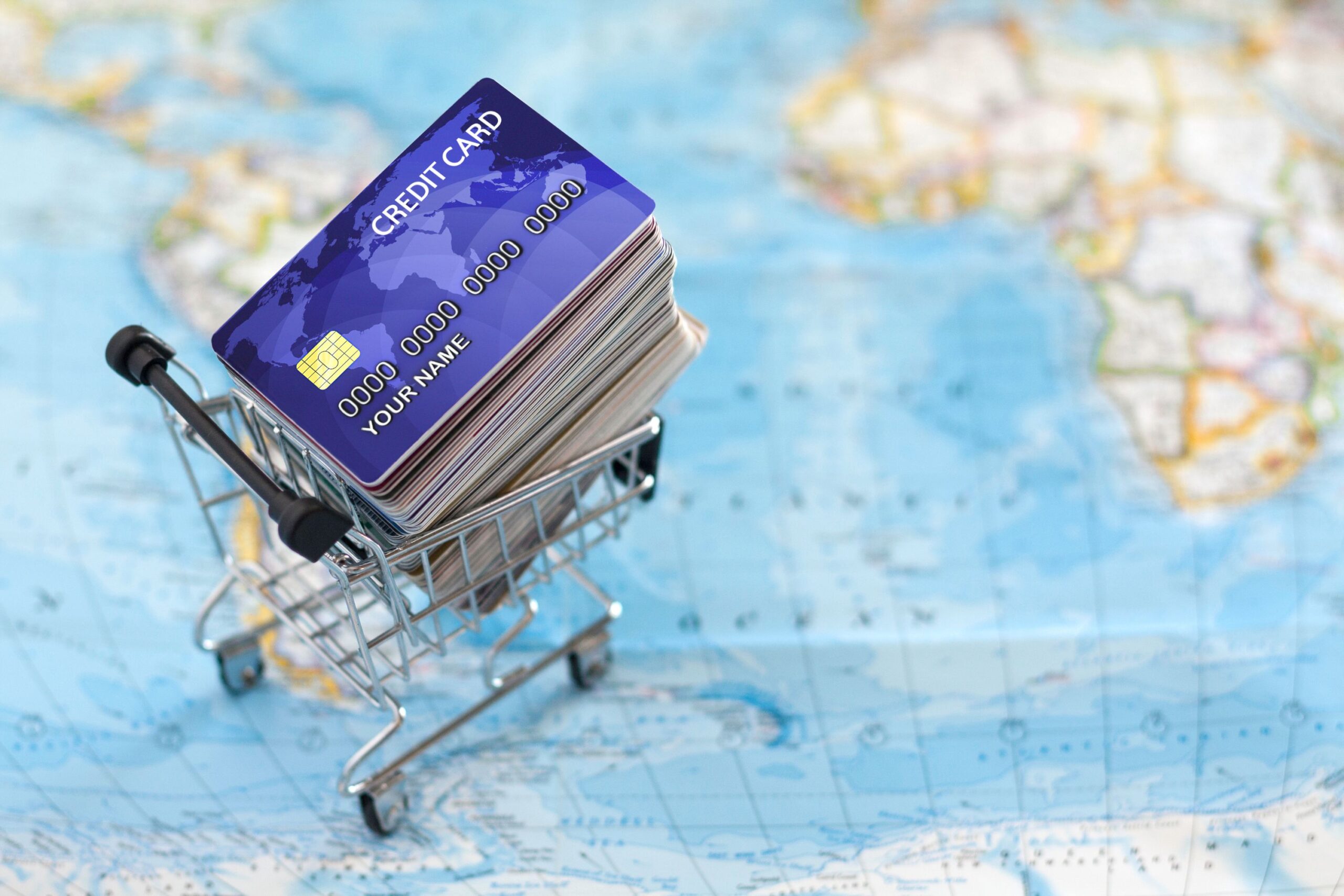Flying regularly can unlock more than travel memories—it can open the door to exclusive perks, priority boarding, free upgrades, and serious savings. But to make all that happen, you need one thing: a frequent flyer account.
If you book flights online even a few times a year, a frequent flyer account is something you’ll want to look into. It’s your ticket to earning miles, building loyalty, and making your travel experience smoother and more rewarding.
What Is a Frequent Flyer Account?
A frequent flyer account is a personal profile set up with an airline’s loyalty program. When you enroll, you receive a unique frequent flyer number to track your travel activity, especially your flights. You earn points or miles each time you fly with the airline (or its partner). Over time, those miles can be redeemed for free flights, upgrades, or travel perks.
You can sign up for a frequent flyer account directly on the airline’s website. It’s free, and it only takes a few minutes. Once you have your account, all your past and future bookings can start contributing to your points balance, as long as you add your frequent flyer number during the booking process.
Why Airlines Offer Frequent Flyer Programs
Airlines created these programs for a simple reason: customer loyalty. The more you fly with them, the more they reward you. And those rewards make it tempting to stay loyal, even when other airlines might offer cheaper fares. For airlines, a frequent flyer account helps build a long-term relationship. For travelers, making flights count for more than just the destination is smart.
Even if you only fly a few times a year, the benefits of having a frequent flyer account start adding up. If you book your flights online, keeping track of your miles and redeeming them when it matters most is even easier.
Key Benefits of Having a Frequent Flyer Account
One of the biggest reasons to set up a frequent flyer account is the ability to earn free flights. But that’s just the beginning. Here’s what else you can expect:
Priority Services
When your frequent flyer account gains miles, you’ll likely move into elite status tiers. These include perks like priority boarding, check-in, and an extra baggage allowance. That makes a big difference when catching a connecting flight or dealing with a crowded airport.
Upgrades and Seat Selection
Airlines often offer complimentary seat upgrades or early access to better seating as you climb the loyalty tiers. If you’re flying long-haul, this can mean the difference between a standard seat and a more comfortable premium economy or business class seat.
Access to Airport Lounges
A frequent flyer account tied to a higher-tier loyalty level might also unlock access to lounges. These spaces give you a quiet place to work, snack, or simply relax before your flight, away from the chaos of the terminal.
Bonus Miles for Booking Online
Here’s where being an online-savvy traveler pays off. Many airlines give bonus miles just to book your flight online and enter your frequent flyer account details at checkout. Some also partner with travel apps or websites, allowing you to earn miles for hotel bookings, car rentals, or shopping.
How to Maximize Your Frequent Flyer Account
Setting up the account is only step one. You’ll need to know how to make it work for you to benefit. First, always enter your frequent flyer number when booking. It sounds basic, but people always forget it, especially if they’re using third-party booking sites. You can log into your airline account first, then book from there or double-check the reservation later to make sure your number is attached.
Second, stick with one airline alliance as much as you can. Even if your chosen airline doesn’t fly to your destination, one of their partners might. If your frequent flyer account is linked to a major airline in an alliance like Star Alliance, Oneworld, or SkyTeam, you’ll earn miles no matter which airline in the group you’re flying with.
Lastly, keep an eye on promotions. Airlines regularly run deals where you can earn double or triple miles for certain routes or by booking during specific windows. If your travel plans are flexible, timing your bookings around those promotions can fast-track your rewards.
What Happens If You Don’t Use Your Miles?
If you’re not flying often, don’t worry—most airlines give you at least 18–36 months before your points expire. However, your miles won’t just sit there forever. You need some qualifying activity to keep your frequent flyer account active—either earning new miles or redeeming them.
If your travel is irregular, you can keep your account active by earning miles through hotel bookings, credit card partnerships, or shopping portals affiliated with the airline. That way, you don’t lose the miles you worked for.
Is a Frequent Flyer Account Worth It If You’re Not a Frequent Flier?
Even if you only fly once a year, having a frequent flyer account is still a good idea. Why? Because you never know how your travel habits might change. The account is free to create and easy to maintain. And even one round-trip flight can earn you enough points for a seat upgrade or a discount later on.
Plus, if you book flights for family members under your name or manage travel for others, many programs allow point pooling or transferring miles, which can multiply your rewards faster than expected.
How to Sign Up and Track Your Miles
You’ll usually find the signup link on the airline’s website under the “Loyalty Program” or “Frequent Flyer” tab. Choose a strong password and save your frequent flyer number somewhere secure. Most programs offer an online dashboard to see your upcoming flights, account balance, rewards activity, and promotions.
Mobile apps also keep track of multiple frequent-flyer accounts across airlines. If you fly with several carriers, these apps will help you stay organized and avoid missing out on earning points.
Managing Multiple Frequent Flyer Accounts Without Losing Your Mind
If you book flights across different airlines, it’s easy to end up with multiple frequent flyer accounts. That’s not a problem, but keeping track of each can get messy if you don’t have a system. Fortunately, there are ways to organize everything so you’re always earning miles and using them before they expire.
The first step is to know which airline belongs to which alliance. For example, if you’re signed up with Lufthansa’s Miles & More program, you can earn miles on United Airlines and Turkish Airlines flights, since they’re all part of Star Alliance. You don’t need to create a new frequent flyer account for each partner unless you want to. Just stick with one main program per alliance and always enter that number when booking.
Should You Join Every Frequent Flyer Program?
Not really. If you’re flying with a carrier once and have no plans to return, joining their frequent flyer program might not be worth your time. But if you’re booking a long-haul flight or plan to use a codeshare partner later, opening a free frequent flyer account and collecting the miles could still make sense.
If you’re unsure which program to choose, choose one that offers flexible redemption options, easy upgrades, and good customer service. Some airlines are more generous with their reward tiers, allowing quicker access to perks like priority boarding or lounge entry.
How to Avoid Losing Miles in Your Frequent Flyer Account
One of the easiest ways to lose earned miles is by letting your account sit idle. Most airlines will expire your miles after a year or two of inactivity. That doesn’t mean you need to fly again immediately—you just need to show some activity.
Here’s a tip: use your frequent flyer account even when you’re not flying. Many programs are tied to hotel booking platforms, online shopping sites, and travel credit cards. You might be able to earn or redeem miles by doing something as simple as renting a car or dining at a partner restaurant.
When you earn or redeem even a small number of miles, the countdown resets, keeping your entire balance safe.
Booking Flights for Others Using Your Frequent Flyer Account
A common question is: Can you book flights for someone else and still use your frequent flyer account? In most cases, you can’t earn miles on a ticket unless you’re the one flying. However, some airlines allow family pooling, meaning you and your family members can link your frequent flyer accounts and earn toward the same reward balance.
For example, British Airways Executive Club and JetBlue TrueBlue let you pool miles. That means if you book flights for your kids, partner, or parents, all of their flight activity can help grow your total point balance faster.
If you want to take advantage of those rewards later, just make sure the traveler earns miles into their own account or joins your household account.
What to Do If You Forgot to Add Your Frequent Flyer Number
It happens. You booked your flight and got your confirmation, but forgot to include your frequent flyer number. Don’t worry—you can usually fix it after the fact. Head to the airline’s website, log into your frequent flyer account, and look for a section labeled “Claim Missing Miles” or “Add Past Flights.”
You’ll need your flight number, dates, and booking reference. As long as the ticket was booked in your name and the flight was operated by the airline or its partner, you should be able to claim those miles within a few weeks of travel.
Make this a habit: always double-check that your frequent flyer account number is added to your booking before departure. It’ll save you time and hassle.
Which Airlines Have the Best Frequent Flyer Accounts?
If you’re just starting, you might wonder which airline has the most rewarding frequent-flyer account. The answer depends on how and where you fly, but here are some standout options:
Delta SkyMiles
There are no blackout dates, and miles never expire. It’s a great choice if you travel around the U.S. and want flexible rewards.
Air Canada Aeroplan
It is well-known for its easy redemption options, even for premium cabins. If you’re booking international flights online, this program offers serious value.
Emirates Skywards
You’ll earn miles quickly and access luxury rewards, including first-class experiences. This option is ideal for those booking long-haul or Middle East–Asia routes.
Flying Blue (Air France/KLM)
It is excellent for European routes and partners with several airlines worldwide. Their frequent flyer account platform is easily managed online and through their app.
Do Budget Airlines Offer Frequent Flyer Accounts?
Some low-cost airlines also have loyalty programs, but the benefits may differ from legacy carriers. You won’t always earn traditional miles, but you might get discount points, priority boarding, or early seat selection. Programs like Ryanair’s “Ryanair Choice” or Wizz Air’s “Discount Club” operate more like paid subscriptions but still provide perks.
If you fly budget airlines regularly, it might still be worth signing up. However, remember that most of their loyalty systems focus more on discounts than on earning rewards toward free flights.
Redeeming Miles from Your Frequent Flyer Account: What to Know Before You Book
Once you’ve built a decent balance in your frequent flyer account, it’s time to use those miles. But here’s where things can get tricky—redemption rules vary by airline, and not all redemptions give you the same value. Some flights cost thousands of miles, while others might only use a fraction.
If you’re looking to get the most from your frequent flyer account, always compare the cash price of a ticket to the number of miles needed. This gives you a sense of how much each mile is worth. On average, one airline mile is valued between 1–2 cents. That might not sound like much, but booking a $500 flight for 25,000 miles starts to feel pretty rewarding.
Flight Redemptions vs. Upgrades: What’s Better?
If your frequent flyer account is growing fast, you’ll eventually reach a point where you can choose between booking a full flight with miles or using them for an upgrade. Each option has pros and cons.
Booking Flights with Miles
This is the most common redemption and usually the easiest to arrange online. If you’re planning a trip, many airline websites only allow you to search using miles. Just log in to your frequent flyer account and start browsing.
Taxes and fees still apply, even on fully paid reward flights. So don’t be surprised if your “free” flight costs $40–$100 in airport charges. Still, if you’re flying long-haul, paying a small fee and using miles instead of cash can make the trip far more affordable.
Upgrading with Miles
If you’ve already booked an economy ticket, you might be eligible to upgrade to business or first class using your frequent flyer account. Not all tickets are upgradeable, so always check the fare class before redeeming miles this way. The upgrade cost in miles will depend on the route, cabin, and availability.
This option works well if you’re flying long-distance and want extra comfort without paying thousands more.
Mistakes to Avoid When Redeeming Frequent Flyer Miles
Some travelers burn through frequent flyer miles too quickly. Others forget about them until they expire. If you want your frequent flyer account to pay off, keep these tips in mind:
- Don’t redeem miles for low-value items. Merchandise like headphones, gift cards, or magazine subscriptions often gives you the worst value per mile.
- Avoid booking last-minute reward flights unless it’s vital. Availability drops, and redemption rates rise.
- Always compare mileage redemptions across different travel dates. Flying midweek instead of on weekends can save thousands of miles.
The brighter you are with redemptions, the more your frequent flyer account will work in your favor over time.
Practical Tools to Manage Your Frequent Flyer Account
Managing miles across multiple airlines can get confusing, especially if you book flights online often and don’t stick to a single airline. But there are a few tools that make it easier:
AwardWallet
This app lets you track balances across dozens of frequent flyer accounts. It sends alerts when miles are about to expire and keeps your logins in one place. You can even add family members.
Points.com
Some airline programs let you transfer or trade points with others through this platform. Not all transfers are worthwhile, but it gives you flexibility if your miles are spread thin.
Airline Mobile Apps
If you mostly stick with one airline, use their official app. Most have mobile boarding passes, flight status updates, and reward balance overviews. Having your frequent flyer account details accessible on your phone makes everything simpler.
Should You Use a Travel Credit Card with Your Frequent Flyer Account?
Many travelers build miles faster by linking their frequent flyer account with a travel credit card. This strategy can work well if you travel often, especially if the card offers sign-up bonuses or points for everyday purchases.
Some cards are airline-specific and deposit miles directly into your frequent flyer account monthly. Others give you general travel points, which you can convert to miles for several airlines.
If you’re thinking long-term, a travel credit card can help you book reward flights faster. Just ensure the card doesn’t come with high fees or blackout restrictions.
Booking Flights Online Using Miles
Always log in first when you’re ready to book using your frequent flyer account. This ensures you see reward availability and can apply your miles immediately. Many airlines now offer flexible booking calendars that show how many miles each date requires, letting you choose the most affordable option.
If your miles don’t cover the full cost, you can do a “cash + miles” combo. This allows you to use what you’ve earned and pay the rest, making even a short balance helpful.
When booking flights for peak season—like holidays or summer breaks—try to plan as far ahead as possible. Reward seats go fast, and airlines only release a limited number.
Choosing the Best Frequent Flyer Program for Your Travel Needs
Not all frequent flyer programs are created equal. Some offer generous redemption options and status perks, while others feel limited or difficult to navigate. If you book flights online regularly, it helps to align your frequent flyer account with a program that truly fits your habits and destinations.
So, how do you pick the right one? Start by considering where you fly most, how often, and which airlines dominate your routes. Programs like Delta SkyMiles, United MileagePlus, or Air Canada Aeroplan might be your best bet if you frequently travel within North America. If your travel leans international, consider Qatar Airways Privilege Club, Turkish Airlines Miles&Smiles, or Flying Blue by Air France and KLM.
Another factor is how easy it is to redeem your miles. Some airlines offer “dynamic pricing,” which means the number of miles needed changes depending on demand. Others use fixed-rate charts that make redemptions more predictable. Decide which style suits you best.
Loyalty Tiers in a Frequent Flyer Account: Are They Worth Chasing?
You’ll eventually reach elite status when you stay loyal to one airline or its alliance. Each frequent flyer account starts at the basic level, but every flight you take earns you qualifying miles or segments. With enough travel, you’ll move into higher tiers like Silver, Gold, or Platinum, unlocking additional privileges.
But is it worth it to chase status?
That depends. If you fly several times yearly, you might hit the lower elite tiers without much effort. This can earn you priority boarding, free seat selection, or waived baggage fees—all of which improve your airport experience. Higher tiers include upgrades, lounge access, and dedicated customer service.
If you’re a casual traveler, you might not benefit enough to prioritize loyalty. But if you’re booking frequent international flights online, a higher status level can save money and time on every trip.
Is It Safe to Store Travel Info in Your Frequent Flyer Account?
When booking flights online, your frequent flyer account can hold much personal information, like your passport number, home address, and saved payment methods. Understandably, travelers want to know if this data is secure.
The short answer is yes when using a legitimate airline website or app. Most airlines use strong encryption protocols, and frequent flyer accounts are password-protected with multi-factor authentication options. However, it’s always smart to:
- Use a strong, unique password for your account.
- Avoid logging in from public Wi-Fi networks.
- Enable two-step verification where available.
If you follow those steps, booking flights online and managing your frequent flyer account should be secure and hassle-free.
How Airlines Are Upgrading Their Frequent Flyer Accounts
Airlines are constantly refining their loyalty programs, and we’re seeing significant changes. More carriers focus on personalization, recommending flight deals, routes, or upgrades based on your travel history. That means your frequent flyer account will start feeling more like a tailored service than a basic dashboard.
Airlines are also improving mobile functionality. Your app will offer faster booking tools, better flight status tracking, and real-time reward updates. The goal is to keep you informed and make managing your miles easier, even on the go.
Some airlines are even integrating AI tools into their frequent flyer platforms, helping you decide when to book, redeem, and which routes offer the best value for your miles. If you fly often, this tech can take your planning to the next level.
Can You Transfer Miles Between Frequent Flyer Accounts?
In some cases, yes—but fees or limitations are usually involved. Most airlines allow you to transfer miles to another member of the same program, often for a small charge per mile or a flat transaction fee. This makes sense if you’re pooling miles for a family trip or trying to help someone else reach a redemption threshold.
However, transferring miles from one airline’s frequent flyer account to another airline outside its alliance is usually impossible. For example, you can’t move from Delta to Emirates directly. But if both airlines belong to the same global alliance, you might be able to book a flight on one airline using the other’s miles.
Just remember—transferring miles rarely gives you the best value. It’s better to book directly through your account unless you’re working toward a shared redemption.
Tips to Keep Your Frequent Flyer Account Active
Life gets busy, and you might go months or years without flying. That’s normal. But if you don’t want to lose your miles, keeping your frequent flyer account active is essential. Here’s how:
- Book a hotel or rental car through airline partners using your account number.
- Shop online through your airline’s e-commerce portal.
- Use a co-branded credit card tied to your frequent flyer account.
- Redeem even a few miles for a small reward, like a magazine subscription or discount voucher.
Activity doesn’t always mean flying. Your miles will stay safe if your account logs some point movement.
FAQs
What is the difference between a frequent flyer account and a loyalty card?
A frequent flyer account is a digital profile that tracks your flights, miles earned, and rewards status. A loyalty card is usually a membership number or physical reminder linked to that account.
Can I have more than one frequent flyer account?
Yes, you can create accounts with multiple airlines, but it’s easier to manage if you focus on one per airline alliance.
How do I find my frequent flyer number?
Log in to your airline’s website or app. Your frequent flyer number is usually listed in your profile section or account dashboard.
Do frequent flyer miles expire?
Yes, most airlines expire miles after 12 to 36 months of inactivity. You can reset this timer by earning or redeeming miles.
Can I earn miles after a flight if I forgot to enter my frequent flyer number?
Yes. Most airlines allow retroactive claims through your account portal if you provide your booking details and fly within the eligible period.
Can I earn miles from flights booked through third-party websites?
Yes, as long as the fare qualifies and your frequent flyer number is added before the flight. Some discount fares may earn fewer miles.
How do I link my frequent flyer account to a travel credit card?
When you apply for the card, you’ll be asked for your account number. If you already have the card, log in to your credit card portal and link it under “rewards” or “airline partners.”
Are award flights really free?
They’re free in miles, but most still require payment of taxes and fees. These vary by airline and route.
Can I upgrade my seat using my frequent flyer miles?
Yes, many airlines allow you to redeem frequent flyer miles for upgrades—either during booking or later via your account dashboard.
What happens to my frequent flyer account if the airline changes its program?
Airlines notify members of any program changes. Your existing miles are usually honored but may be subject to new terms or expiration policies.




